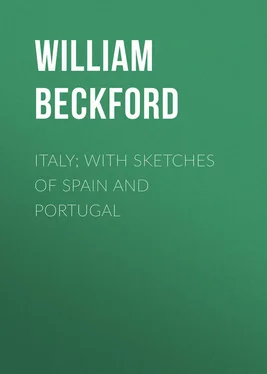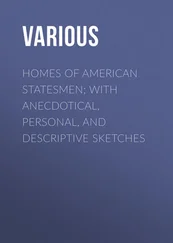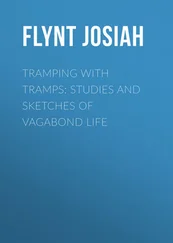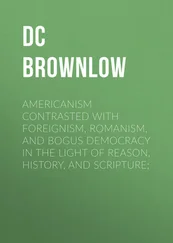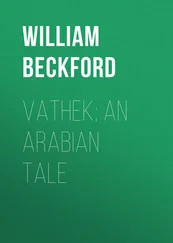William Beckford - Italy; with sketches of Spain and Portugal
Здесь есть возможность читать онлайн «William Beckford - Italy; with sketches of Spain and Portugal» — ознакомительный отрывок электронной книги совершенно бесплатно, а после прочтения отрывка купить полную версию. В некоторых случаях можно слушать аудио, скачать через торрент в формате fb2 и присутствует краткое содержание. Жанр: foreign_antique, foreign_prose, Путешествия и география, на английском языке. Описание произведения, (предисловие) а так же отзывы посетителей доступны на портале библиотеки ЛибКат.
- Название:Italy; with sketches of Spain and Portugal
- Автор:
- Жанр:
- Год:неизвестен
- ISBN:нет данных
- Рейтинг книги:3 / 5. Голосов: 1
-
Избранное:Добавить в избранное
- Отзывы:
-
Ваша оценка:
- 60
- 1
- 2
- 3
- 4
- 5
Italy; with sketches of Spain and Portugal: краткое содержание, описание и аннотация
Предлагаем к чтению аннотацию, описание, краткое содержание или предисловие (зависит от того, что написал сам автор книги «Italy; with sketches of Spain and Portugal»). Если вы не нашли необходимую информацию о книге — напишите в комментариях, мы постараемся отыскать её.
Italy; with sketches of Spain and Portugal — читать онлайн ознакомительный отрывок
Ниже представлен текст книги, разбитый по страницам. Система сохранения места последней прочитанной страницы, позволяет с удобством читать онлайн бесплатно книгу «Italy; with sketches of Spain and Portugal», без необходимости каждый раз заново искать на чём Вы остановились. Поставьте закладку, и сможете в любой момент перейти на страницу, на которой закончили чтение.
Интервал:
Закладка:
I need not say how liberally I bestowed my encomiums on Count Bentinck’s tasteful intentions; nor how happy I was, when I had duly serpentized over his garden, to find myself once more in the grand avenue. All the way home, I reflected upon the unyielding perseverance of the Dutch, who raise gardens from heaps of sand, and cities out of the bosom of the waters. I had, almost at the same moment, a whimsical proof of the thrifty turn of this people; for just entering the town I met an unwieldy fellow – not ill clad – airing his carcase in a one-dog chair. The poor animal puffed and panted, Mynheer smoked, and gaped around him with the most blessed indifference.
LETTER III
The Prince of Orange’s cabinet of paintings. – Temptation of St. Anthony, by Breughel. – Exquisite pictures by Berghem and Wouvermans. – Mean garrets stored with inestimable productions of the Indies. – Enamelled flasks of oriental essences. – Vision of the wardrobe of Hecuba. – Disenchantment. – Cabinet of natural history. – A day dream. – A delicious morsel. – Dinner at Sir Joseph Yorke’s. – Two honourable boobies. – The Great Wood. – Parterres of the Greffier Fagel. – Air poisoned by the sluggish canals. – Fishy locality of Dutch banquetting rooms. – Derivation of the inhabitants of Holland. – Origin and use of enormous galligaskins. – Escape from damp alleys and lazy waters.
30th June, 1780.I DEDICATED the morning to the Prince of Orange’s cabinet of paintings and curiosities both natural and artificial. Amongst the pictures which amused me the most is a temptation of the holy hermit St. Anthony, by Hell-fire Breughel, who has shown himself right worthy of the title; for a more diabolical variety of imps never entered the human imagination. Breughel has made his saint take refuge in a ditch filled with harpies and creeping things innumerable, whose malice, one should think, would have lost Job himself the reputation of patience. Castles of steel and fiery turrets glare on every side, whence issue a band of junior devils. These seem highly entertained with pinking poor Anthony, and whispering, I warrant ye, filthy tales in his ear. Nothing can be more rueful than the patient’s countenance; more forlorn than his beard; more piteous than his eye, forming a strong contrast to the pert winks and insidious glances of his persecutors; some of whom, I need not mention, are evidently of the female kind.
But really I am quite ashamed of having detained you in such bad company so long; and had I a moment to spare, you should be introduced to a better set in this gallery, where some of the most exquisite Berghems and Wouvermans I ever beheld would delight you for hours. I do not think you would look much at the Polembergs; there are but two, and one of them is very far from capital; in short, I am in a great hurry; so pardon me, Carlo Cignani! if I do not do justice to your merit; and forgive me, Potter! if I pass by your herds without leaving a tribute of admiration.
Mynheer Van Something was as eager to precipitate my step as I was to get out of the damps and perplexities of Sorgvliet yesterday evening; so, mounting a creaking staircase, he led me to a suite of garretlike apartments; which, considering the meanness of their exterior, I was rather surprised to find stored with some of the most valuable productions of the Indies. Gold cups enriched with gems, models of Chinese palaces in ivory, glittering armour of Hindostan, and Japan caskets, filled every corner of this awkward treasury. The most pleasing of all its baubles in my estimation was a large coffer of most elaborate workmanship, containing enamelled flasks of oriental essences, enough to perfume a zennana. If disagreeable fumes, as I mentioned before, dissolve enchantments, such aromatic oils have doubtless the power of raising them; for, whilst I scented their fragrancy, I could have persuaded myself, I was in the wardrobe of Hecuba, —
“Where treasured odours breathed a costly scent.”
I saw, or seemed to see, the arched apartments, the procession of matrons, the consecrated vestments: the very temple began to rise upon my sight, when a sweltering Dutch porpoise approaching to make me a low bow, his complaisance proved full as notorious as Satan’s, when, according to Catholic legends, he took leave of Luther, that disputatious heresiarch. No spell can resist a fumigation of this nature; away fled palace, Hecuba, matrons, temple, &c. I looked up, and lo! I was in a garret. As poetry is but too often connected with this lofty situation, you will not wonder much at my flight. Being a little recovered from it, I tottered down the staircase, entered the cabinets of natural history, and was soon restored to my sober senses. A grave hippopotamus contributed a good deal to their re-establishment.
The butterflies, I must needs confess, were very near leading me another dance: I thought of their native hills and beloved flowers, on the summits of Haynang and Nan-Hoa; 3 3 Hills in the neighbourhood of Canton.
but the jargon which was gabbling all around me prevented the excursion, and I summoned a decent share of attention for that ample chamber which has been appropriated to bottled snakes and pickled fœtuses.
After having enjoyed the same spectacle in the British Museum, no very new or singular objects can be selected in this. One of the rarest articles it contains is the representation in wax of a human head, most dexterously flayed indeed! Rapturous encomiums have been bestowed by amateurs on this performance. A German professor could hardly believe it artificial; and, prompted by the love of truth, set his teeth in this delicious morsel to be convinced of its reality. My faith was less hazardously established; and I moved off, under the conviction that art had never produced anything more horridly natural.
It was one o’clock before I got through the mineral kingdom; and another hour passed before I could quit with decorum the regions of stuffed birds and marine productions. At length my departure was allowable; and I went to dine at Sir Joseph Yorke’s, with all nations and languages. Amongst the company were two honourable boobies and their governor, all from Ireland. The youngest, after plying me with a succession of innocent questions, wished to be informed where I proposed spending the carnival. “At Tunis,” was my answer. The questioner, not in the least surprised, then asked who was to sing there? To which I replied, “Farinelli.”
This settled the business to our mutual satisfaction; so after coffee I strayed to the Great Wood, which, considering that it almost touches the town with its boughs, is wonderfully forest-like. Not a branch being ever permitted to be lopped, the oaks and beeches retain their natural luxuriance. In some places their straight boles rise sixty feet without a bough; in others, they are bent fantastically over the alleys, which turn and wind about just as a painter would desire. I followed them with eagerness and curiosity; sometimes deviating from my path amongst tufts of fern and herbage.
In these cool retreats I could not believe myself near canals and windmills; the Dutch formalities were all forgotten whilst contemplating the broad masses of foliage above, and the wild flowers and grasses below. Hares and rabbits scudded by me while I sat; and the birds were chirping their evening song. Their preservation does credit to the police of the country, which is so exact and well regulated as to suffer no outrage within the precincts of this extensive wood, the depth and thickness of which might otherwise seem calculated to favour half the sins of a capital.
Relying upon this comfortable security, I lingered unmolested amongst the beeches till late in the evening; then taking the nearest path, I suffered myself, though not without regret, to be conducted out of this fresh sylvan scene to the dusty, pompous parterres of the Greffier Fagel. Every flower that wealth can purchase diffuses its perfume on one side; whilst every stench a canal can exhale poisons the air on the other. These sluggish puddles defy all the power of the United Provinces, and retain the freedom of stinking in spite of any endeavour to conquer their filthiness.
Читать дальшеИнтервал:
Закладка:
Похожие книги на «Italy; with sketches of Spain and Portugal»
Представляем Вашему вниманию похожие книги на «Italy; with sketches of Spain and Portugal» списком для выбора. Мы отобрали схожую по названию и смыслу литературу в надежде предоставить читателям больше вариантов отыскать новые, интересные, ещё непрочитанные произведения.
Обсуждение, отзывы о книге «Italy; with sketches of Spain and Portugal» и просто собственные мнения читателей. Оставьте ваши комментарии, напишите, что Вы думаете о произведении, его смысле или главных героях. Укажите что конкретно понравилось, а что нет, и почему Вы так считаете.
